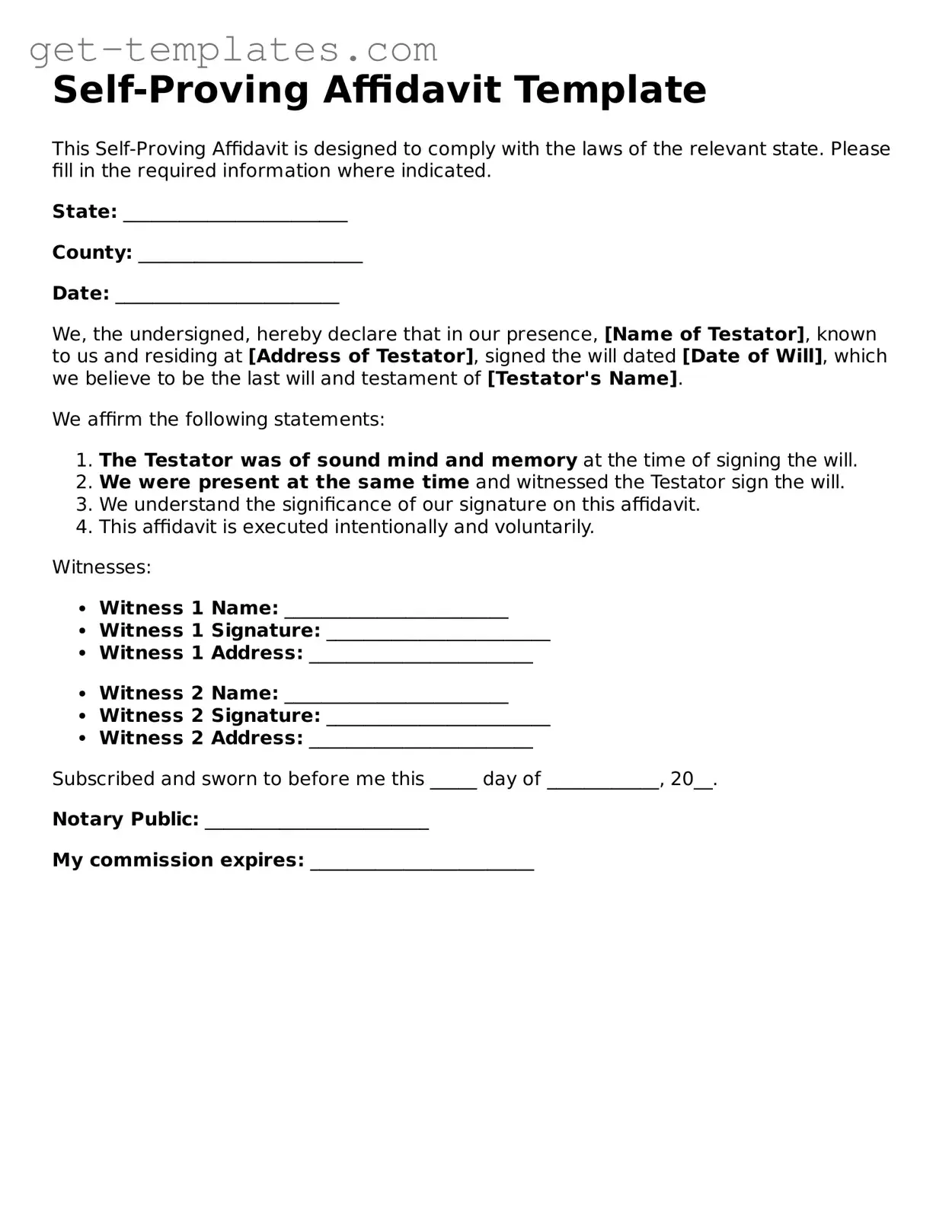Attorney-Approved Self-Proving Affidavit Form
A Self-Proving Affidavit is a legal document that allows a will to be validated without the need for witnesses to testify in court. This form simplifies the probate process, ensuring that the intentions of the deceased are honored efficiently. Understanding its importance can help streamline the administration of an estate, providing peace of mind during a challenging time.
Get Document Online

Attorney-Approved Self-Proving Affidavit Form
Get Document Online
You’re halfway through — finish the form
Finish Self-Proving Affidavit online — edit, save, download made easy.
Get Document Online
or
⇓ PDF Form
